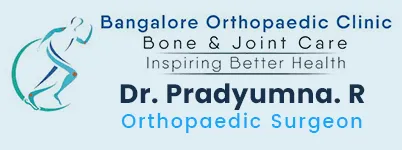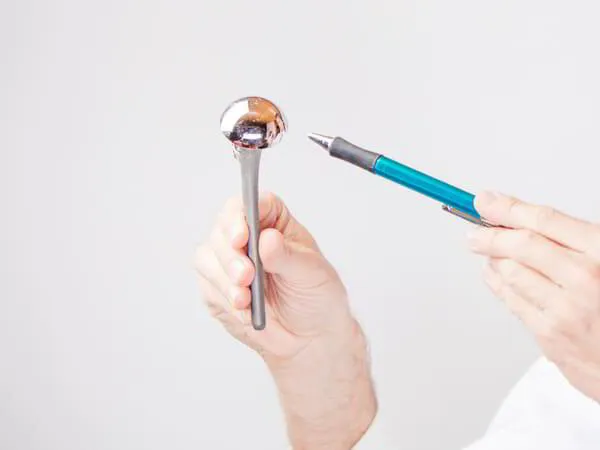Revision Shoulder Replacement
Home / Area of Specialty / Shoulder / Revision Shoulder Replacement
Dr. Pradyumna R carefully evaluate your conditions and symptoms associated to your shoulder pain and shoulder injuries, based on the diagnostic report and scan he would suggest if so, you are a candidate for Revision Shoulder Replacement procedure, he is an highly experienced shoulder treatment specialist provides diagnosis as well as surgical and nonsurgical treatment options at Bangalore Orthopaedic Clinic, in BTM Layout, Bangalore.
If you have any queries or would like to schedule an appointment for revision shoulder replacement or total shoulder replacement or shoulder pain treatment consultation please call +919113025188.
What is Revision Shoulder Replacement?
A revision shoulder replacement is revision of your current shoulder replacement and it is necessary due to multiple reasons. First, it will become worn out and not provide adequate support for your arm anymore. Second, it can also become infected due to bacteria that may cause you an infection within the artificial joint. You can also injure or break the area surrounding the shoulder replacement.
Despite the high rate of success for total shoulder replacement, revision surgery may occasionally be necessary due to persistent pain, infection, stiffness, weakness, instability, hardware loosening, malposition or fracture. These complications occur with the formation of osteophytes (bone spurs), scar tissue, deficits in the supporting muscles, injury to nerves during surgery, soft tissue imbalance, and loose bodies. Complications may also occur when the components are too large, become loose or misplaced. Inadequate participation in the rehabilitation program and overstraining the repaired tendons too early are other causes for surgical failure.
Who is eligible for Revision Shoulder Replacement?
If you have shoulder joint pain, or have undergone shoulder joint replacement and the components have become loose or infected, you may need to undergo revision surgery.
Revision can be complicated with the use of a reverse shoulder prosthesis to maximize function of the shoulder.
Bone graft may be required to replace lost bone that previously supported the joint.
In cases of infection, the old components are removed and treated with antibiotics until infection is resolved before new components are implanted.
Tests and Diagnosis for Revision Shoulder Replacement
The diagnosis of failure is always a difficult problem in arthroplasty, and there are many factors that must be considered in establishing a cause for failure. The history will be taken to find a beginning of the symptoms and previous surgeries that may have caused problems for the current surgery. Next will come a thorough physical examination. The doctor will carefully evaluate the range of motion, strength, and stability. Then, if necessary, X-rays may be taken to see if there are any abnormalities.
Revision Shoulder Replacement Procedure
After a thorough examination, the surgeon maps out a surgical plan that addresses the patient's specific limitations. The appropriate incision is made and affected structures are repaired, reshaped and/or replaced with implants that fit better as determined by the surgeon during the surgery. In cases of severe infection or when infected structures cannot be removed, it may be necessary to remove the injured area and replace it with replacement parts that are matched more precisely to the patient's anatomy.
Post-operative precautions after Revision Shoulder Replacement
There are precautions to reduce pain after revision shoulder replacement surgery. After your shoulder revision, you may experience increased pain and stiffness. In the early stages of healing, it's important not to put excessive stress on the joint. For example, do not turn the arm or reach sideways, and avoid placing an arm across or behind the body
To reduce swelling and to control pain while your joints heal, you need to avoid certain positions. These positions include: straightening the arm out over the head; twisting it behind the back; holding it out sideways; holding it above the waist; reaching below the knees with it; grasping anything with that hand.
It is also important that patients do not cross their arms or put pressure on their shoulders, as this can cause lasting damage.
What are the risks & complications?
As with any other surgery, there are risks and possible complications. These include:
- Stiff shoulder
- Pain
- Bleeding
- Infection of the surgical site (wound)
- Allergic reaction to the equipment, materials or medication
- Damage to nerves around your shoulder
- Loosening
- Rotator-cuff tears
- Dislocation of your shoulder replacement
What are the Advantages of Revision Shoulder Replacement?
Shoulder replacement surgery can help relieve pain, improve strength, increase range of motion and allow a greater level of function for individuals with osteoarthritis, rotator cuff tear arthropathy, avascular necrosis and rheumatoid arthritis.
Patients who undergo the procedure will experience an immense reduction in pain, enhanced range of motion and substantial improvement in strength.
For more information on Revision Shoulder Replacement or partial shoulder replacement or shoulder replacement or other shoulder pain or shoulder injury treatment options available, please call +919113025188. Dr. Pradyumna R, Orthopaedic shoulder specialist serving BTM Layout, Bangalore City.

